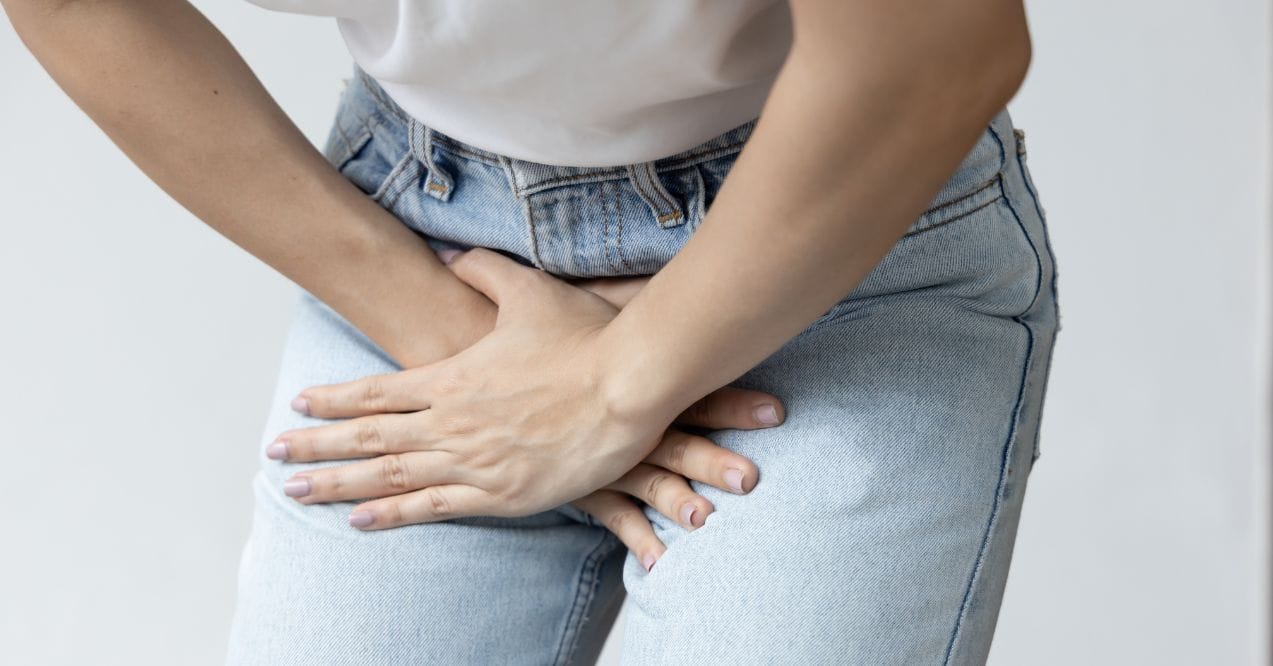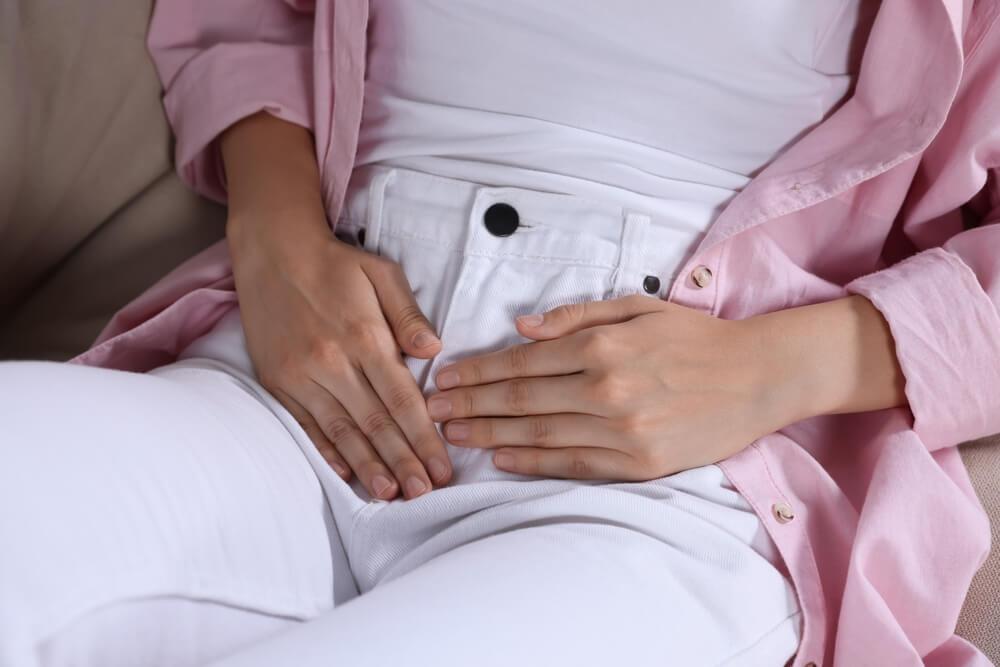Does Ovulation Make You Tired? Asking an Expert
Medically reviewed by our experts


Does ovulation make you tired? This is a question that resonates with many women, echoing a curiosity about the intricate ways our bodies function. In this blog post, we delve into the physiological process of ovulation, a cornerstone event in the female reproductive cycle, to unravel its potential impact on our energy levels. Ovulation, though a natural and essential process, may be more than just a biological marker; it’s an orchestration of hormonal fluctuations that might influence how we feel, both physically and emotionally.
We’ll explore the nuances of how ovulation affects the body, particularly in terms of energy levels and overall well being. Our discussion will pivot around the hormonal interplay that characterizes this phase of the menstrual cycle, shedding light on how these hormonal shifts might translate into feelings of fatigue.
Understanding the effects of ovulation is paramount, not only for personal health but also for fostering a deeper connection with one’s body. Join us as we embark on this enlightening journey to uncover the mysteries of ovulation and its impact on our daily lives.
What Does Ovulation Do to Your Body?
Ovulation, a central event in the menstrual cycle, triggers a cascade of physiological changes, predominantly steered by hormonal shifts. This phase, which typically happens around the middle of the cycle, is marked by several key developments.
Hormonal Changes:
- The process initiates with an increase in estrogen levels. This not only thickens the uterine lining, preparing it for a potential pregnancy, but also leads to a spike in luteinizing hormone (LH). LH is crucial as it triggers the ovary to release an egg.
- Post-ovulation, the corpus luteum, formed from the empty follicle, begins to secrete progesterone alongside estrogen. This shift in hormone balance is significant, as progesterone maintains the uterine lining and modulates various bodily functions.
The effects of these hormonal fluctuations are far-reaching, influencing both physical and mental states.
Physical and Mental Effects:
- Increased estrogen levels may lead to enhanced physical energy and mental alertness before ovulation.
- The rise in progesterone following ovulation often results in feelings of tiredness or lethargy, impacting overall energy levels.
- These hormonal variations also extend their influence to other areas, such as skin health, appetite, and sensory perception, showcasing the extensive reach of ovulation’s impact.
In addition to hormonal changes, ovulation might induce physical sensations and alterations in the reproductive organs.
Reproductive Organ Changes:
- Some women experience ovulation pain. A mild pain or discomfort that occurs when the egg is released.
- There’s also a noticeable change in cervical mucus, which becomes clearer and more elastic.
Understanding these intricate changes during ovulation is crucial. It not only prepares the body for a potential pregnancy but also affects a woman’s daily life, influencing her physical wellbeing and emotional state.
Does Ovulation Make You Tired?

Many women find themselves asking, “Why am I so tired during ovulation?” The experience of fatigue during this phase is not just a mere coincidence but rather a consistent pattern observed by many.
Post-ovulation, the body, having gone through the complex process of releasing an egg, might naturally divert energy towards potential fertilization and implantation processes. This redirection of energy, even in the absence of pregnancy, may result in a feeling of being drained or lethargic and making women search for ways on how to increase their energy levels.
The tiredness felt during and immediately after ovulation might be quite pronounced for some, leading to a need for increased rest and a slower pace in daily routines. It’s not just a matter of feeling a bit sleepy; for some, it translates into a noticeable decrease in energy, making tasks that were once easy feel more challenging. This state of being extremely tired after ovulation is a part of the natural cycle for many women, highlighting the profound ways in which the reproductive cycle might influence overall physical states.
While there is a recognition of fatigue around the ovulation phase, much of the understanding is based on general observations and the known effects of hormonal fluctuations on the body. The available information predominantly comes from health blogs and medical experts’ opinions rather than peer-reviewed scientific research.
Research inequality, especially in the context of women’s health, is a recognized issue in the scientific and medical communities. Historically, there has been a gender bias in medical research, with studies often disproportionately focusing on male subjects. This bias has led to a gap in understanding women-specific health issues, including the nuances of menstrual cycles.
It is plausible that areas such as the relationship between menstrual cycles and symptoms like fatigue may still be under-researched due to these longstanding inequalities. However, in recent years, there has been a growing awareness of these disparities, and efforts are being made to include more female participants in clinical studies to specifically address women’s health issues.
Symptoms Of Ovulation

Ovulation, a key stage in the menstrual cycle, brings with it a variety of symptoms that may affect women in different ways. Among these, fatigue during ovulation is often mentioned, highlighting how this natural process might influence energy levels.
Additionally, changes in appetite, including increased hunger, are also commonly associated with this phase. These symptoms, including the question “does ovulation make you tired and hungry?” reflect the complex and individualized nature of the body’s response to ovulation, underscoring the diverse experiences women have with their menstrual cycles.
1. Mood Swings
Mood swings during ovulation are a significant and often challenging aspect of the menstrual cycle for many women, characterized by a wide range of emotional fluctuations. These shifts might manifest as heightened sensitivity, increased irritability, or even abrupt changes from feelings of contentment to those of sadness or frustration.
The spectrum of emotions experienced may be vast and unpredictable, making this period particularly demanding for some. The primary cause of these mood swings is the complex hormonal changes occurring throughout the menstrual cycle. Hormones like estrogen and progesterone fluctuate during this time, directly impacting the brain’s neurotransmitters, such as serotonin and dopamine. These neurotransmitters are crucial in regulating mood and emotional responses.
As hormone levels ebb and flow, they may lead to significant variations in these neurotransmitters, consequently influencing a woman’s mood. This hormonal turbulence might often feel like an emotional rollercoaster, with some women experiencing rapid and intense shifts in their feelings and reactions. One moment they might feel a surge of happiness and optimism, and shortly after, they might find themselves grappling with unexplained sadness or irritability. This might be bewildering not only for the women experiencing these mood swings but also for their loved ones.
2. Increased Libido
Changes in libido during ovulation are a noteworthy aspect of the menstrual cycle, often characterized by a noticeable fluctuation in sexual desire. This period, typically occurring in the middle of the cycle, is when many women experience a natural increase in libido. This heightened sexual desire is largely attributed to the body’s biological aim to encourage reproduction at the time when fertility is at its peak.
This natural upsurge in libido is not just a biological response but may also positively affect emotional and physical intimacy, making it a time of increased connection and closeness for many couples. It’s important to note that these changes may vary greatly among women; some may experience a significant increase in libido, while others may notice more subtle changes. For those who are looking for ways to increase their libido, the best supplements for vaginal health may be the answer. These supplements help the genital muscles to relax and improve blood circulation to heighten libido.
3. Cramps
Cramps during ovulation, often referred to as mittelschmerz, are a common experience for many women. This phenomenon typically occurs around mid-cycle, corresponding with the release of an egg from the ovary. Ovulation cramps may range from mild to severe and are usually felt on one side of the lower abdomen, the side from which the egg is released.
These cramps differ from menstrual cramps in their timing and duration. Ovulation cramps usually occur two weeks before the onset of the menstrual period and might last from a few minutes to several hours. While they are generally less intense than menstrual cramps, for some women, they might be quite painful and may be accompanied by other symptoms such as light spotting or vaginal discharge.
4. Breast Sensitivity
Breast sensitivity during ovulation is a notable symptom experienced by many women as part of their menstrual cycle. This sensitivity, or tenderness, typically occurs in the days leading up to and including ovulation. It is characterized by breasts feeling fuller, heavier, or more sensitive to touch. For some women, this might be a mild discomfort, while for others, it may be quite painful and disruptive.
The cause of increased breast sensitivity around ovulation is primarily linked to the hormonal fluctuations that occur during the menstrual cycle. As the body prepares for ovulation, levels of estrogen rise, leading to the expansion of the milk ducts in the breasts. This hormonal surge may result in breasts feeling swollen, tender, or even sore.
Additionally, the increase in progesterone post-ovulation might further contribute to breast tenderness by causing the milk glands to enlarge. Breast sensitivity during this phase is a normal physiological response and varies greatly among women in terms of intensity and duration. Some may experience it every cycle, while others might only have it occasionally. The degree of tenderness might also change from one cycle to the next.
5. Cervical Mucus Changes
Cervical mucus change during ovulation is an important physiological sign and a key indicator of fertility in the menstrual cycle. As a woman approaches ovulation, her body undergoes several changes, one of which is a noticeable alteration in the consistency and quantity of cervical mucus. This change is primarily driven by the hormonal fluctuations that occur during the menstrual cycle, especially the increase in estrogen levels. Typically, in the days leading up to ovulation, cervical mucus becomes more abundant, clearer, and stretchier, often compared to the consistency of raw egg whites.
This particular type of mucus, known as fertile mucus, plays a crucial role in reproduction. Its elastic and watery nature provides an ideal environment for sperm to swim through the cervix and into the uterus, aiding in the process of fertilization.
After ovulation, as estrogen levels decrease and progesterone levels rise, cervical mucus typically becomes thicker and less abundant, creating a barrier that inhibits sperm penetration. This change in consistency signifies the end of the fertile window.
6. Fatigue
So, does ovulation make you tired? Fatigue during ovulation is a commonly reported symptom among many women, characterized by a noticeable decrease in energy levels during the mid-cycle period. Ovulation is thought to be linked to the complex hormonal changes occurring in the body during this phase of the menstrual cycle.
This ovulation-related fatigue might manifest as a general feeling of tiredness, a desire for more sleep, or a decreased motivation for activities that are usually manageable. Sometimes, this experience of feeling unusually tired or drained leaves us searching for the best vitamins and supplements for energy. It’s important to note that the intensity of this fatigue may vary greatly among women, with some experiencing only mild effects, while others find it significantly impacts their daily routines.
7. Potential Nausea and Headaches
Nausea and headaches during ovulation are symptoms experienced by some women, which may be attributed to the hormonal changes occurring in the body during this phase of the menstrual cycle. Although not as commonly discussed as other ovulatory symptoms, these experiences might significantly impact those who encounter them.
Nausea during ovulation may present as a mild queasiness or a more pronounced feeling of sickness. It may be influenced by the rapid hormonal shifts, particularly the surge in estrogen, which might affect the stomach and the brain’s chemical balance. Some women might also experience related symptoms like bloating or abdominal discomfort, which might contribute to the feeling of nausea.
Headaches, on the other hand, may range from mild to severe and may manifest as tension headaches or migraines. The exact mechanism linking headaches to ovulation is not fully understood, but it’s believed that the sudden rise or drop in estrogen levels could be a trigger. These headaches may be accompanied by other symptoms such as sensitivity to light, nausea, or visual disturbances in the case of migraines.
How to Overcome Ovulation Fatigue?
Overcoming ovulation fatigue, a common concern among many women who often find themselves feeling extremely tired after ovulation, requires a holistic approach to health and well-being. Experiencing low energy during ovulation might be challenging, but there are effective strategies that may help in managing this symptom:
- Firstly, prioritizing sleep is crucial. Ensuring adequate and quality sleep may help in replenishing energy levels. Establishing a regular sleep schedule and creating a restful environment might make a significant difference.
- Secondly, maintaining a balanced diet rich in nutrients supports overall health and might combat fatigue. Incorporating foods high in iron and magnesium, which are essential for energy production, may be particularly beneficial.
- Regular exercise, while it may seem counterintuitive when feeling fatigued, might actually boost energy levels. Gentle exercises like yoga or walking may be effective in increasing stamina and overall well-being.
- Additionally, managing stress through relaxation techniques such as meditation or deep breathing exercises might help in alleviating fatigue.
In the realm of supplements, considering products that support overall metabolic health can be beneficial. PureHealth Research’s Metabolic Greens+ and Metabolic Reds+ are excellent choices. These supplements are designed to optimize gut health and hormone balance, both crucial for managing energy levels during ovulation. The best supplements for women’s health, like these, contain probiotics that support a healthy gut microbiota, essential for maintaining a positive mood and clear skin during menses.
Metabolic Reds+ recharges metabolic batteries with 46 potent real food ingredients and symbiotics, providing vital nutrients for a healthy metabolism and increased energy reserves. It helps in digestion and absorption of nutrients, which is essential for maintaining energy levels.
Metabolic Reds+, on the other hand, is rich in antioxidants, adaptogens, digestive enzymes, probiotics, vitamins, and minerals. This comprehensive formula supports various aspects of health, including energy boosting, fat burning, and weight management. The ingredients in Metabolic Reds+ help in balancing systems in the body, protecting cells, and improving digestion and gut health.
Managing ovulation fatigue involves a multifaceted approach including lifestyle changes, dietary adjustments, regular exercise, stress management, and the support of supplements like Metabolic Greens+ and Metabolic Reds+ to maintain a healthy metabolic and hormonal balance.
Key Takeaways
To effectively manage ovulation fatigue, it’s crucial to understand why women might feel tired during this phase and recognize ovulation symptoms:
- Mood Swings
- Increased Libido
- Ovulation Pain
- Breast Sensitivity
- Cervical Mucus Changes
Why tiredness during and after ovulation might appear:
- Hormonal Changes
- Energy Redistribution
Overcoming ovulation fatigue, a common issue where women feel extremely tired after ovulation, may be addressed through various holistic approaches:
- Prioritize Sleep
- Balanced Diet
- Regular Exercise
- Stress Management
Yes, it’s normal to feel tired during ovulation. This fatigue is often due to hormonal changes in the body, especially the increase in progesterone post-ovulation, which can lead to a sense of lethargy. Each woman’s experience can vary, but this is a common symptom of the ovulatory phase.
During ovulation, your body undergoes significant hormonal shifts, particularly an increase in progesterone, which can induce a sense of tiredness. This hormonal change, essential for the reproductive process, often leads to a temporary decrease in energy levels, making you feel unusually tired during this phase.
Popular Articles
Advertisement. This site offers health, wellness, fitness and nutritional information and is designed for educational purposes only. You should not rely on this information as a substitute for, nor does it replace, professional medical advice, diagnosis, or treatment. If you have any concerns or questions about your health, you should always consult with a physician or other health-care professional. Do not disregard, avoid or delay obtaining medical or health related advice from your health-care professional because of something you may have read on this site. The use of any information provided on this site is solely at your own risk.


















